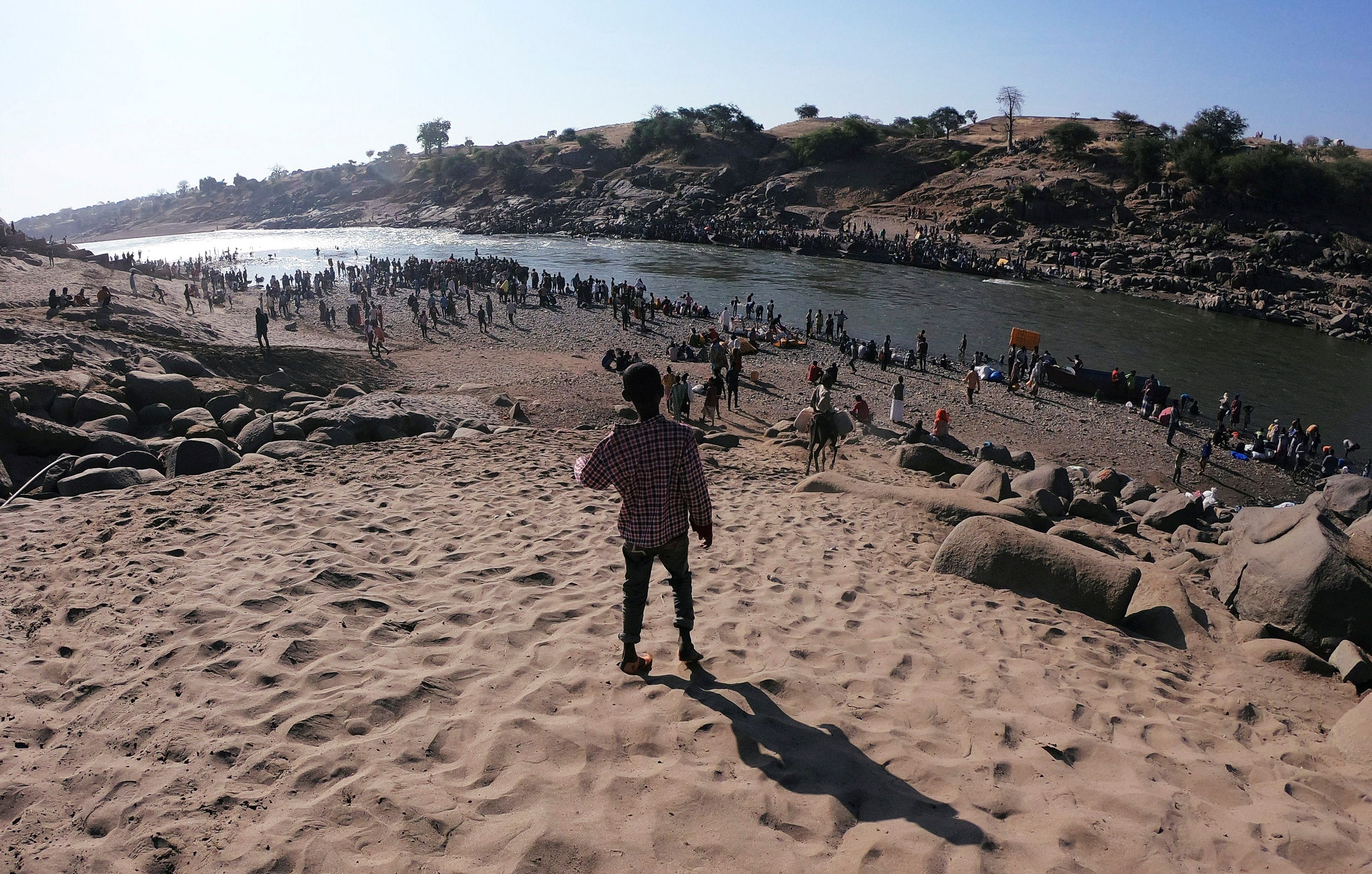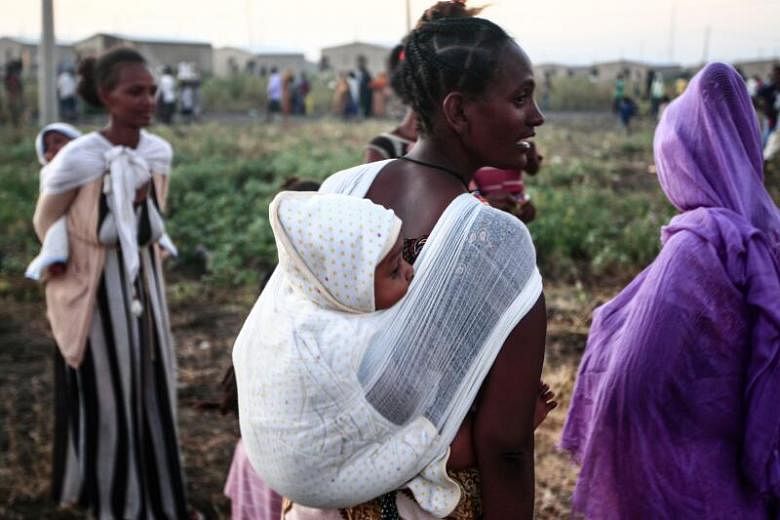ADDIS ABABA (REUTERS) - Ethiopa's Prime Minister Abiy Ahmed, who won the 2019 Nobel Peace Prize, has sent troops into northern Tigray state whose leaders he accuses of treason.
The two-week-old conflict between federal government forces and the Tigray People's Liberation Front (TPLF), a powerful ethnic faction which governs the mountainous region, threatens to destabilise Ethiopia and the wider Horn of Africa.
Abiy ordered the air strikes and sent troops into Tigray two weeks ago after accusing forces loyal to the Tigrayan leadership of attacking a federal military base.
Tigray's president Debretsion Gebremichael, who is chairman of the TPLF, denied that Tigrayan troops had initiated any attacks and said they were acting in self defence, without providing evidence.
Security sources and state media have said hundreds of soldiers on both sides have been killed in the fighting, but have not confirmed civilian casualties.
Tensions escalated in September when Tigray held a regional election in defiance of the federal government, which postponed voting nationwide due to the Covid-19 pandemic.
Tigray leaders accused Abiy of trying to illegally extend his term - which he denied - and argued the central government did not have the authority to prevent the regional election, which local officials said the TPLF won.
The government subsequently suspended federal funding to Tigray, saying the vote was illegal.
Here are some of the knock-ons:
Human cost
Africa's second largest nation, with 115 million people, was already suffering from the coronavirus outbreak, a locust plague and ethnic clashes that have uprooted hundreds of thousands of people in the last two years.
Now, the Tigray conflict has killed hundreds of combatants, sent more than 10,000 refugees fleeing to Sudan and interrupted aid operations for more than half a million people reliant on food aid and other emergency assistance. Non-essential United Nations' staff and others have pulled out.
Horn of Africa security
Tigray borders both Sudan and Eritrea, which fought a 1998-2000 war with Ethiopia that killed tens of thousands in trench warfare and minefields.
Despite the 2018 peace deal, Eritrea's President Isaias Afwerki remains hostile to the TPLF. There are fears that the Afwerki administration may become sucked in to back Abiy.
Ethiopia's military is the most effective in the Horn of Africa, which borders the Suez Canal, one of the world's busiest shipping routes.
It plays a big role in an African Union (AU) force combating Al Qaeda-linked militants in Somalia, which may be affected if it has to divert resources to Tigray.
Foreign investment
The prime minister had pledged to liberalise Ethiopia's tightly-controlled economy, which clocked nearly double-digit annual growth for years before the coronavirus hit.
The lucrative telecoms industry, in particular, was considered a big prize by multinational mobile companies, with licence issues planned for next year.

A full-scale war would hinder the economy and the entry of foreign capital.
Furthermore, Addis Ababa, the capital of Ethiopia, is an aviation hub for the region, with state-owned Ethiopian Airlines the continent's most successful and fastest-growing airline.
Reforms at risk
After taking office in 2018, Abiy was applauded for opening up a repressive political system, including freeing activists from jail and lifting bans on opposition political parties. Last year, he won his Nobel prize for a peace pact with Eritrea.
But his democratic transition was already waning even before the push on Tigray, experts say, including the jailing of a prominent opposition member and restricting media.
The TPLF, which rules the region of more than 5 million people, accuses Abiy of persecuting them, while he says they attacked a military base and have rebelled against his national authority.
In the past week, the government has arrested more than 150 people they accuse of being "operatives" for the Tigrayans, furthering the impression of an autocratic slide.
Ethnic fractures
While Abiy's more open rule won him plaudits at first, it also uncorked frictions over ethnicity, land and resources that exploded into violence, killing many hundreds of people.
He is an Oromo, Ethiopia's largest ethnic group, and his militancy against the Tigrayan leaders may encourage other groups to exploit the chaos to push for more autonomy.
Redeployment of forces to Tigray could leave other regions exposed.
Army splits
Ethiopia's national army is Africa's largest and best-trained. But its best fighters are from Tigray and most of its hardware is also there, under the Northern Command.
The military is already showing signs of splitting along ethnic lines. Some Tigrayan soldiers are refusing to fight their own people, while some military hardware and bases in the region are under control of the local leadership, experts say.

